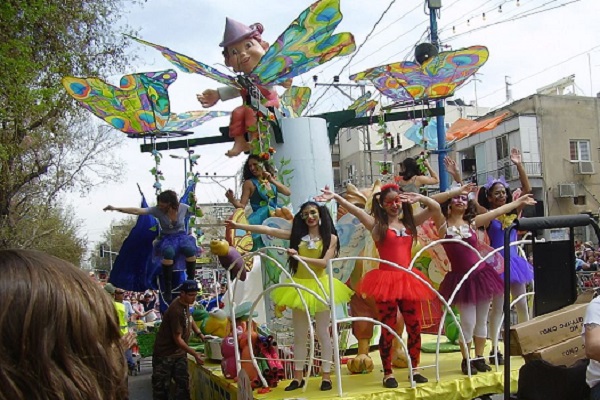Purim, according to Hebrew Bible- the Book of Esther, is a Jewish festival which is celebrated to commemorate the protection of Jewish people from Haman.
The day is celebrated on the 14th day of the month of Adar according to Jewish calendar. In Jerusalem, the festival is celebrated on the 15th day of Adar.
The Legend :

According to the Book of Esther, Haman was a confidante of King Ahasuerus of Persian empire who hatched a plan to kill all the Jews of the King’s empire. However, his plans of killing the Jews from the empire were foiled by Mordecai and Queen Esther, who was Mordicai’s adopted daughter. Thus, the Jews achieved victory over their enemies and hence, the following day became a day to celebrate and rejoice.
The Traditions:

One of the most important traditions of the day is hearing to the public reading of the Book of Esther. This public recitation is called kriat ha-megillah. Historically, the public reading of the book was done on Purim only. After the recommendations of Rabbi Joshua in 3rd century BC, the Book of Esther began to be read on the day prior to Purim as well. That tradition continues till this day.
Must Read : “Jews of India”
Another interesting part about the tradition is the obligation for women to read the book. Owing to the participation of a woman, Queen Esther, in protecting the Jews, it is mandatory for women to read the Book of Esther on Purim.
On this day different kinds of gifts are also exchanged between friends and relatives. And it is obligatory to exchange food gifts on this day. This exchange of gifts and food is called Mishloach manot or the Purim Basket. The probable reason behind this obligation is the fact that the day after the Jewish victory of Haman, people rejoiced and exchanged gifts, of which food was a major part.

Jewish people are also encouraged to make donations to the poor on this day. This donation to the poor is called mattanot la-evyonim. Helping poor people on Purim is one of the four obligations as laid down by the Jewish religion. The fourth obligation is having a festive meal on the day, in order to rejoice the victory of Jews over their enemy.This festive meal is also called Seudat Purim.
The other customs include wearing masks, different interesting costumes, public celebrations and parades. Another interesting tradition is eating hamantaschen that is “Haman’s ear”. Haman’s ear is a filled pocket cookie or pastry that is associated with Haman.
[earth_inspire]









